Graham Reid | | 7 min read
Meat Puppets: Sexy Music
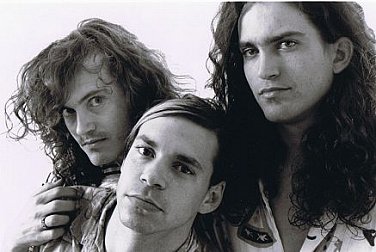
It's an old truism and therefore
probably quite false, but it goes like this; ask musicians their
influences and you can pick their sound.
It certainly doesn't hold up when you
speak to Curt Kirkwood of the Meat Puppets from Arizona.
After he’s ticked off The Beatles,
Joe Walsh, Yes (!), and Black Sabbath, he then confuses things
further by adding in the free-jazz group The Art Ensemble of Chicago,
part-time chess professional and avant-garde saxophonist Anthony
Braxton, and jazz guitarist John Abercrombie.
Then he adds as an afterthought: “But
I love George Jones above any other singer."
So there it is, art-rock, Brit-pop,
heavy-metal and classic country all baked together by Kirkwood, his
brother Cris and drummer Derrick Bostrom under a blistering Arizona
sun.
The list may not make a picture of
their music any clearer but it certainly explains why the Meat
Puppets have been one of the most consistently unpredictable and
enjoyable bands of the Eighties.
Signed to the small independent SST
label in California in 1980, they leapt on to vinyl with an album of
head-banging, hard rock, then crossed it with a touch of country
music for their second outing.
Their 85 Up On The Sun skittered from
the barely accomplished dirge of the title track through very
peculiar psycho-gypsy cow-punk – or something like it. However you
tried to describe their sound, it came with a lot of hyphens.
Mirage, from 87, settled into a country
style with a couple of songs the Traveling Wilburys would be
comfortable with. Very folksy too.
Later that year they turned up the
volume for Huevos, which pitched itself somewhere between Creedence
Clearwater and ZZ Top. It also had guitar solos which were even more
unfashionable then than today.
The Meat Puppets never failed to
deliver the right amount of unpredictability -- the Moby Grape of the
Eighties, as someone said.
They also had lyric sheets which were
no more helpful than: “laughing gold carried on silver, open robe
waving by the trailer, this is paradise . . .”
Things also seemed to get fairly
psychedelic under the Arizona sun: “The music turned to
emerald-feathered goblins . . .”
Needless to say, they are terrific.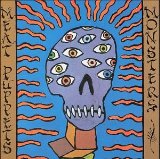
Their new album, Monsters, keeps just
enough country and delivers the melodies and guitar solos with
hard-boogie intensity. Shades, a six-pack and barbecue are the
preferred fashion accessories for this music.
Kirkwood, guitarist and cover artist
for the Puppets, flicks through his back pages to account for the
strange blend of musical ideas which has become the band’s sound.
The country one is easy.
When the family first shifted to
Phoenix with their stepfather (he was in the horse racing business)
they lived at a place with the
seedy-sounding name of Turf Paradise.
“That’s where the guy wrote The
Race is On, and Marty Robbins came from Phoenix. Waylon Jennings got
a good start here and Tumblin’ Tumble Weeds was written here too.
There's a lot of country music in Arizona."
But the big influences were the stadium
rock superstars who would rumble through from time to time. Being off
the track for smaller acts, says Kirkwood, meant you got just the
biggies – like Yes, Rod Stewart with the Faces and so on.
And that’s what has made the Meat
Puppets one of the great live acts -- at least all the press on them
is unanimous on that count: “Thats the difference between us and a
lot of others. We can do live what we do on record – and then some.
The people I liked the best were bands like the Mahavishnu Orchestra
and The Grateful Dead, people who can really wail live."
However, after a series of pleasurably
peculiar albums and EPs added to great live shows, they still haven't
broken the surface in the way you might expect. There‘s a reason.
"Well, that’s a very tender
subject," says Kirkwood, then talks openly about his annoyance
with SST and the lack of distribution and promotional clout a small
label has.
The Puppets and SST have both been hurt
by rumours the band were going to sign to a major label and break out
much like REM -- a useful reference point for their similarly cultish
following and regional-hero status - with the Monsters album.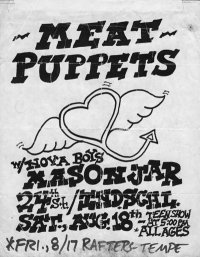
Kirkwood admits he took the tapes of
Monsters to a lot of different companies who had been sniffing around
them, but a rumour they had already signed a big deal put them
offside with SST, so it was back to SST with the album which Kirkwood
says has best captured their live energy.
“I've vacillated between anger and
temperance -- because when we tour people tell us they can't get our
records, so I say bad things about SST -- but then there you are down
in New Zealand, and you’ve got the album and it has only been out
in the States about six weeks, so maybe it's alright.
“But I still think distribution is a
problem. They don’t think so and say, 'Well, sue us'. If they
distributed better and sold more albums, we could afford to. It just
goes around like that.“
The major label interest is still there
however, even though Kirkwood says some of the company reps sent out
had a problem with the group.
“Our shows are very different. On
record our lyrics seem seriously contemplative, but on stage we
really let go. It sounds arrogant to say it, but there’s really
nothing like us. We’re in a different realm and that's why a lot of
people have trouble writing about us. They try to compare - and you
can't.
“I‘m really into Disney and my
comparisons would tend to be cinematic ones. It’s a multimedia
presentation and I’ve perceived the best rock stuff that way. I
guess that’s the Bowie influence. The first show I ever saw was
Bowie and that Diamond Dogs stuff. I saw that as a teenager."
But his earliest influence and you can
still hear flickers of it on Monsters, was the Beatles.
“If I get into an artist enough,"
says Kirkwood, “I have dreams about them. The Beatles were the
first. When I was a kid I dreamed they came over to my grandpa's,
hoisted me up on their shoulders and sang For He's A Jolly Good
Fellow. I loved the Beatles and after they broke up I remember a void
until Led Zeppelin and Black Sabbath came along."
Strange dreams, an odd
cross-pollination of musical influences and the desert sun also make
for some downright indecipherable lyrics. Nothing the Meat Puppets
have penned sounds remotely grounded in any kind of conventional
reality. They've certainly never gone close to anything as solid as
politics.
“None of that stuff is that
interesting. It’s participated in by very few people on any
realistic basis. I perceive it as evil -- just strong-arming at any
level. Thinking people are way beyond politics.“
And unlike fellow Phoenix rockers Alice
Cooper and The Tubes, the Puppets are quite happy to stay where they
are. It's a bigger city now than when they were growing up, the
left-field acts come
through and recording studios are good.
Yet Monsters was recorded in Los
Angeles and Kirkwood says that decision was easy. He'd been doing
some test recording at a place imaginatively called The Record Studio
in Orange County and it seemed inexpensive.
Orange County near Disneyland - the
focus of all Kirkwood's fascination?
"Yeah, it was real close, but we
felt like the water in the studio might have been tainted by the
sewage from Disneyland. Maybe we were getting more than just the
proper attitude because of the Disney run-off.
"That might be a strange
coincidence. People will say 'Yeah, riiiight'. But let's be honest.
Monsters is definitely the closest we've come to hitting the panoply
of medium forms of styles and moods."
He’s right you know.
For an overview of other Meat Puppets albums go here.


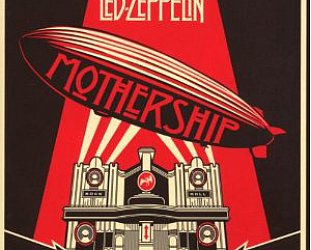
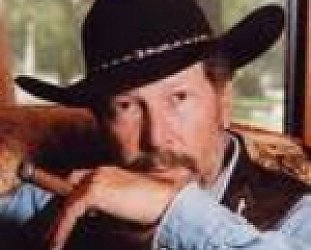
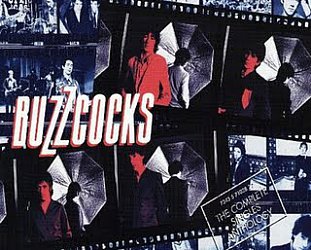

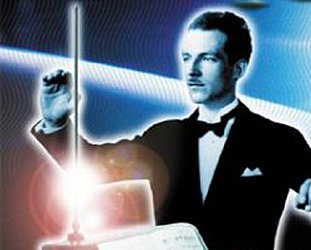
post a comment